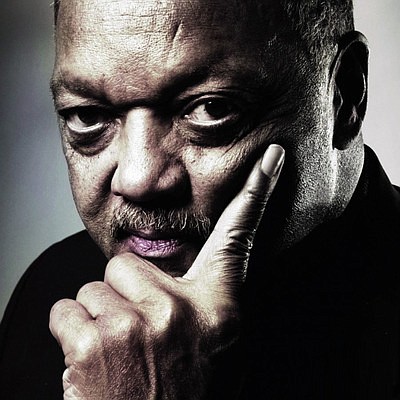Historically Black Colleges Deserve Better
Jesse Jackson | 10/29/2021, 6:55 a.m.
At Howard University, one of the leading historically black colleges and universities in America, dozens of students are sleeping outdoors in a tent encampment to protest conditions in dormitories that they describe as "unlivable." and dangerous to their health. The students complain of mold, rodent and roach infestations, leaky ceilings, and flooding - all things that could put their health at risk.
Since the middle of October, students have taken over the Blackburn University Center, a student hub and cafeteria in the center of the campus. The Howard University Student Affairs Division has warned the student occupiers that they are in violation of the student code of conduct, with "consequences" that could include "expulsion from the university." At the same time, and even in the same email, university administrators promise to "preserve the integrity and authenticity of the students' constitutionally guaranteed rights of free speech." The university alleges that only a handful of complaints have been received, and that each is being investigated.
The students have asked for a town meeting with University President Wayne Frederick. They have reached out to CK Hoffler, the legendary former head of the National Bar Association, to seek legal representation.
These demonstrations are, of course, a massive embarrassment to Howard. But Howard is not alone. Students in Atlanta HBCUs - Morehouse College, Spelman College, Clark Atlanta University and Morris Brown College - have joined together in demonstrations to protest conditions.
Central to the problem is what the universities call deferred maintenance. Struggling with rising needs and inadequate resources, the colleges have often put off the maintenance costs needed to sustain and update their core infrastructure, including classrooms and dormitories. That may save money in the near term but it adds to costs in the medium term.
For example, a recent report to a committee of the Tennessee legislature, revealed that the state's flagship HBCU, Tennessee State University, requires more than $420 million to cover deferred maintenance over the next decade. It also revealed that the state government had withheld matching funds from TSU that were required by the U.S. Department of Agriculture to the tune of more than $544 million over the past 70 years. HBCUs like other colleges and institutions also are struggling to deal with the rising costs imposed by extreme weather events - floods and droughts - and the damages wrought by the COVID-19 pandemic.
Howard prides itself on its famous graduates, including notably Vice President Kamala Harris. In the wake of the George Floyd murder, the Black Lives Matter movement, and Harris' visible association, Howard - like many historically black colleges - has enjoyed a surge of applications and a sharp increase in students attending. In the fall of 2020, Howard reported a nearly 16 percent increase in student applications.
Partly as a result of the demonstrations and growing popularity, Howard and other HBCUs also received a sharp increase in donations. For Howard, that included a $40 million donation from billionaire philanthropist Mackenzie Scott, the biggest single donation in its history. In addition, HBCUs collectively were allocated approximately $2.6 billion through the CARES ACT Higher Education Emergency Relief Fund.
As The Hilltop, the nation's oldest black college newspaper, reports historically black colleges and universities make up 3 percent of America's colleges and universities, but are historically underfunded. In 2015, the American Council of education reported that HBCUs experienced higher declines in federal funding from 2003-2015 than non-HBCUs.
As part of his initial Build Back Better plan in March, Biden had called for $45 billion in funding earmarked specially for the nation's HBCUs and minority serving institutions (MSIs). But when the reconciliation bill came out, that number was slashed to $2 billion over 10 years. MSIs include Hispanic Serving Institutions. including large schools like the University of Texas and University of California already blessed with large enrollments and endowments. We don't even know if the $2 billion will be preserved as conservative Democratic dissenters carve away at the original bill, but we do know that it won't be nearly enough to meet the universities' needs, much less the Biden promise.
While administrators may feel caught between a rock and a hard place, they will have to respond to the student concerns. No student should risk their health because of dangerous housing conditions. Those courageous enough to protest should have their concerns discussed, not their actions punished. And Congress should reconsider its commitment to HBCUs and to higher education generally. It is truly bizarre that the legislators would join together to pump up a Pentagon budget already bigger than the next 11 military budgets added together, (almost all of whom are our allies), while cutting back efforts to make schools affordable and safe for all who have the qualifications to attend.
You can write to the Rev. Jesse Jackson in care of this newspaper or by email at jjackson@rainbowpush.org. Follow him on Twitter @RevJJackson.







